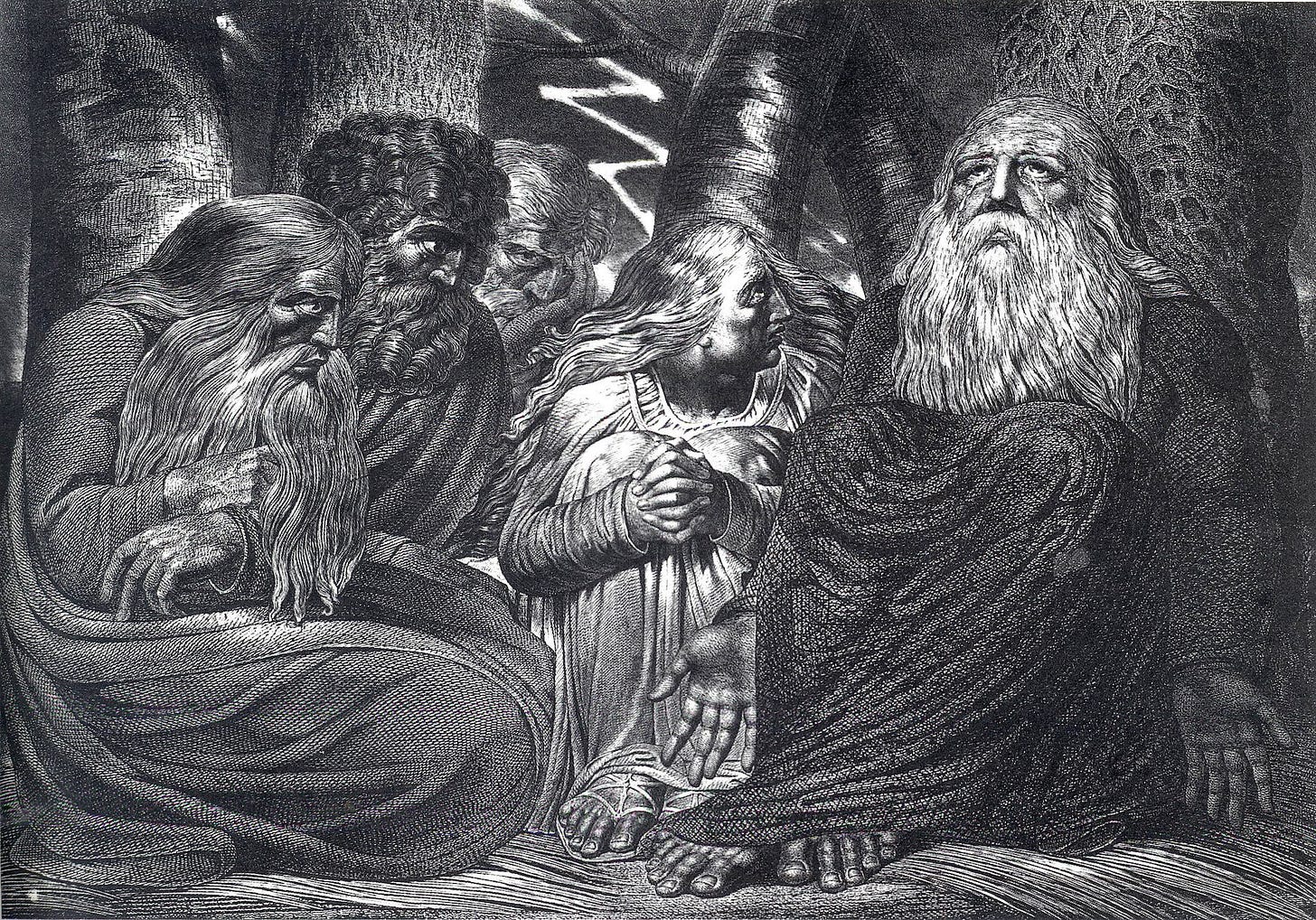Reading Rene Girard’s Job: The Victim of His People
Written & Concealed
All the additions to the Dialogues do violence to the original text; they are victorious acts of persecution in that they have succeeded until now in neutralizing the revelation of the scapegoat. Everything that is not Job in the Book of Job, with the powerful support of the exegesis forming a vengeful circle around the Dialogues, endeavors to conceal the essential message: to falsify it or, better still, to bury it again, suppressing it entirely (p. 143).
Girard concedes, however, that the additions that obscure and alter the overall meaning provide a “protective coating”:
By concealing Job’s subversive power, the mystifying additions have made the text accessible to ordinary devotion and, at the same time, prevented it from being rejected in horror, or so completely censored, changed and mutilated that its meaning would be lost forever (p. 144)
This idea might be applied to the entire Bible, especially the Old Testament. It is an idea that the book of Job illustrates, not only within itself, but also via its inclusion in the Tanakh: that the scriptures have been compromised as the only means by which they were able to reach us, down through the centuries.





